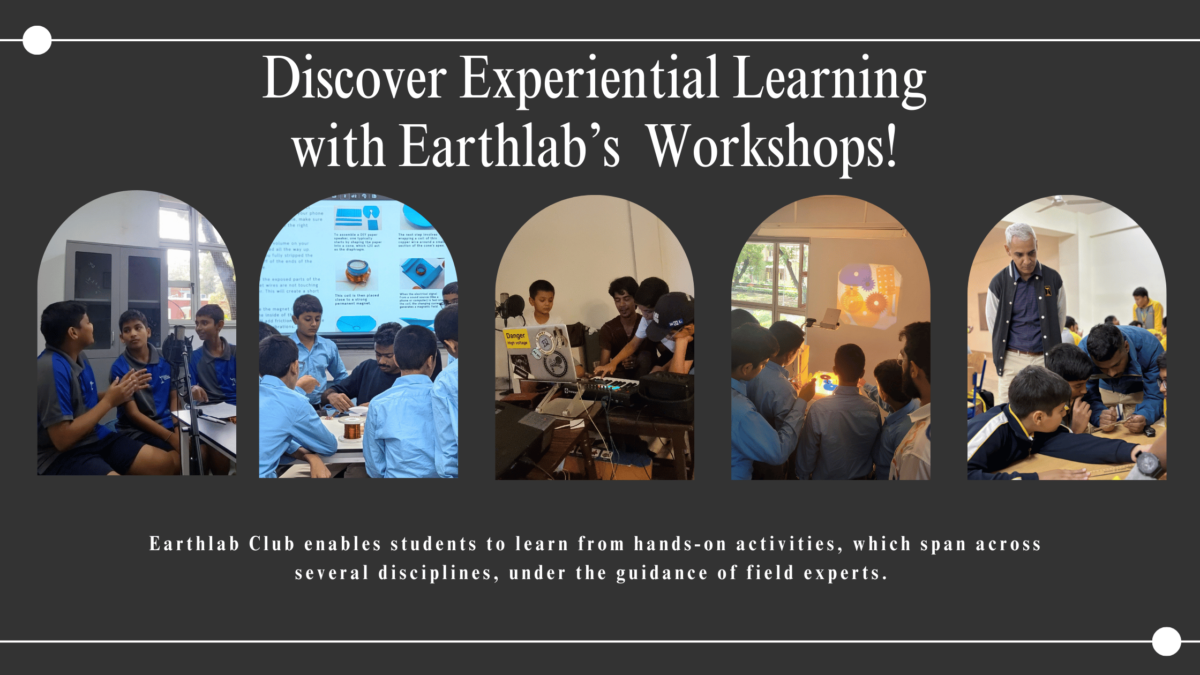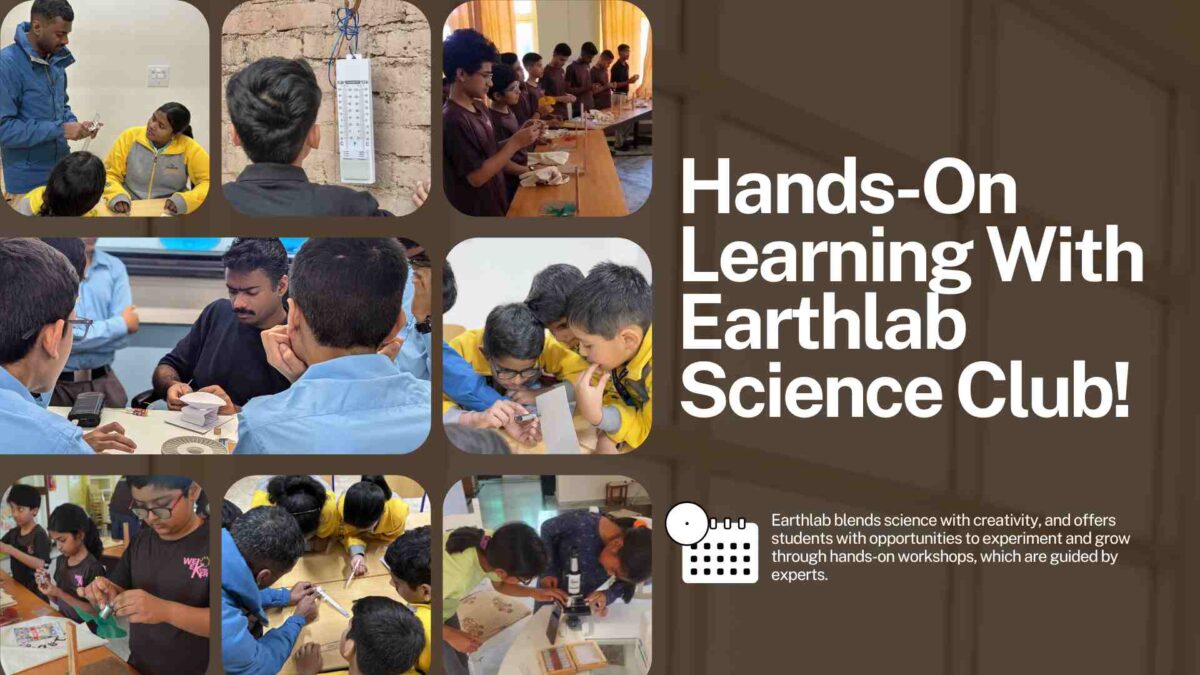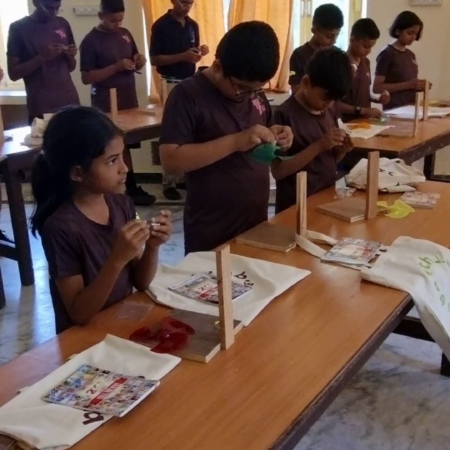Imagine a child’s eyes lighting up as they watch the world turn upside down in a room transformed into a camera obscura. They then go on to build their own pinhole camera with a phone box and, in a darkened room, experience the magic of developing negatives and positives of the images they captured. These are not just fun experiments; they are profound experiences that connect curiosity with creativity, turning fleeting moments into lasting skills. At Earthlab Club, this isn’t just an experiment—it’s the foundation of our philosophy. We believe that learning happens best when students actively do, feel, and connect. Known as experiential learning, this approach nurtures intellectual, emotional, and social growth in ways that traditional methods often overlook.
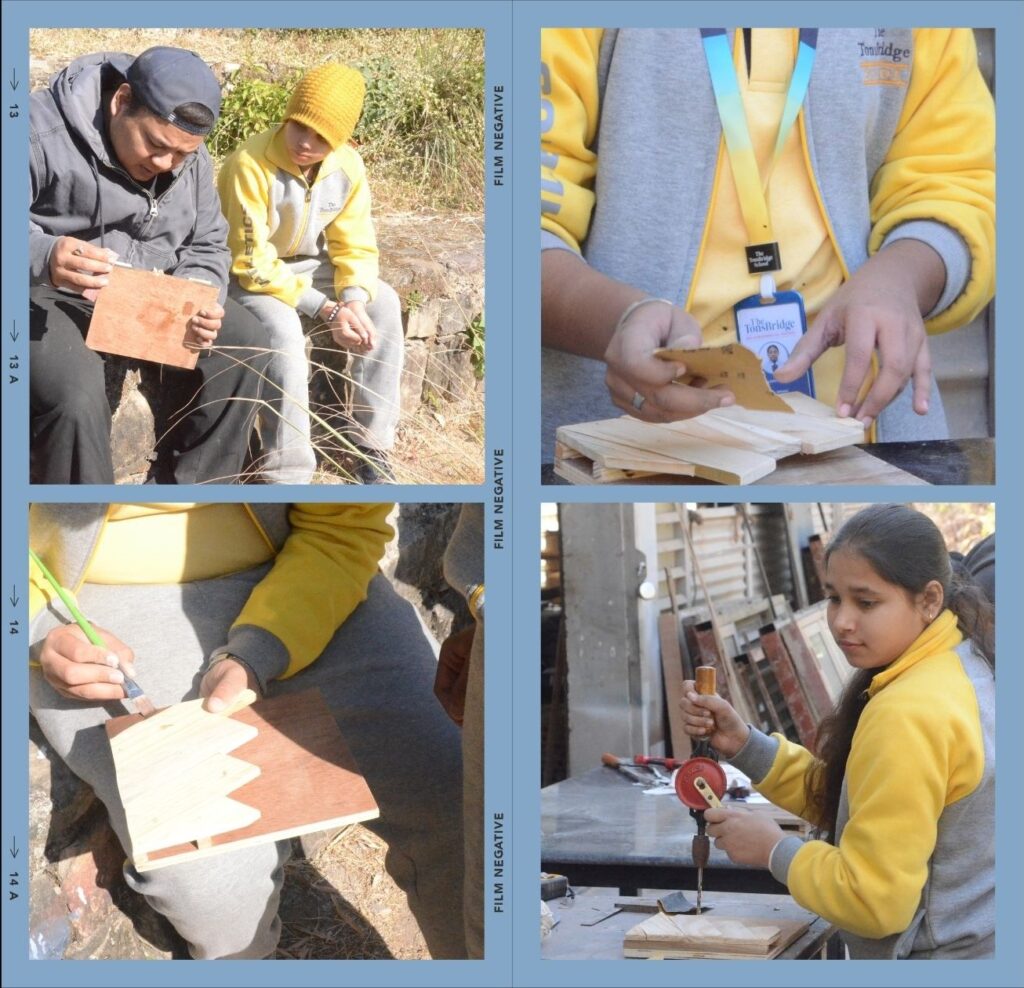
In today’s digital age, where children encounter screens as early as two months old and attention spans seem to shrink daily, experiential learning offers a vital counterbalance. Research paints a concerning picture: excessive screen exposure in children is linked to weakened concentration, reduced focus, and declining academic performance. Adolescents, in particular, face the growing challenges of indiscipline and poor learning outcomes tied to prolonged smartphone use. The ASER 2023 survey revealed that one in four adolescents struggles to read a Grade 2-level text fluently—a worrying decline over the years.
These challenges call for an education model that goes beyond rote memorization and passive instruction. Learning must be deeply engaging, relevant, and connected to the real world. Experiential learning answers this call. By engaging multiple senses, fostering curiosity, and linking knowledge to practical applications, it addresses the gaps left by conventional methods. The emphasis placed on experiential education by India’s National Education Policy (NEP) 2020 highlights its critical role in preparing students for the complexities of the future.

At Earthlab Club, we amplify this approach by weaving insights from neuroscience into our programs, aligning learning experiences with how the brain naturally learns. Activities like designing pinhole cameras, composing original songs, building paper speakers, enacting their own stories, or creating their own podcasts tap into the brain’s ability to adapt and grow through new experiences—a concept known as neuroplasticity. When students actively engage with the world around them, they stimulate critical areas of the brain, enhancing memory, processing skills, and creativity.
We believe that education flourishes when it is both immersive and personal. At Earthlab, students connect—not just with the concepts they’re learning, but with their peers and mentors in meaningful, collaborative ways. This connection fosters a sense of belonging, encouraging students to learn from and with each other.
The creative process, too, lies at the heart of learning. Building, experimenting, and exploring teach children not only problem-solving but also the patience and persistence that underlie innovation. Whether crafting a story or designing a solution, the act of creation builds skills that extend far beyond the classroom.
And finally, there is communication. At Earthlab, we emphasize reflection and self-expression, giving students the tools to articulate their insights and ask better questions. By closing the loop through thoughtful inquiry, we ensure that learning isn’t just absorbed—it transforms into action.
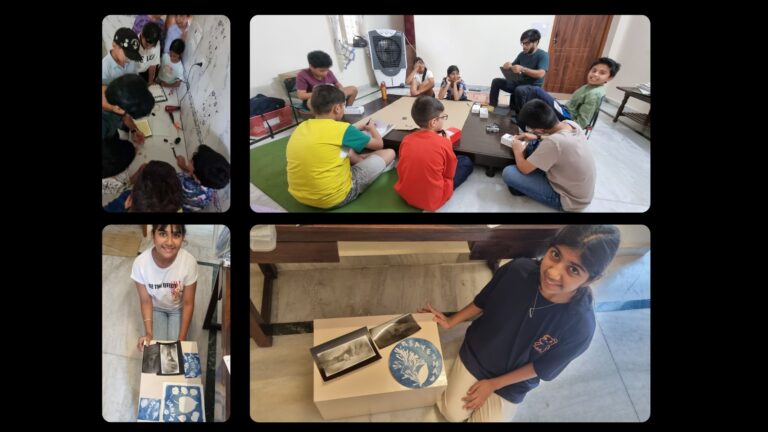
This holistic approach wouldn’t be possible without collaboration. We work with experts from diverse fields—science, design, communication, technology, nature, and astronomy—to craft workshops and programs that are as inspiring as they are educational. Our partnerships with schools like The Doon School, Dehradun Hills Academy, and Tonsbridge School bring these experiences to life, ensuring students leave not just with knowledge but with the skills and mindsets they’ll need to thrive.
As parents and educators, we all want children to grow—not just academically, but as confident, curious individuals who can navigate an ever-changing world. Experiential learning is more than an effective teaching method; it’s a way of equipping young minds with the tools to think critically, collaborate meaningfully, and adapt to new challenges.
At Earthlab Club, a dedicated space at Jakhan in Rajpur Road, Dehradun, we’re not just reimagining what education looks like; we’re reimagining what it can do. Whether you’re a parent seeking transformative experiences for your child or an educator looking to inspire your students, we invite you to join us.
Let’s turn curiosity into capability, and education into an unforgettable journey. Together, we can revolutionize learning—one story, one experiment, and one connection at a time.

